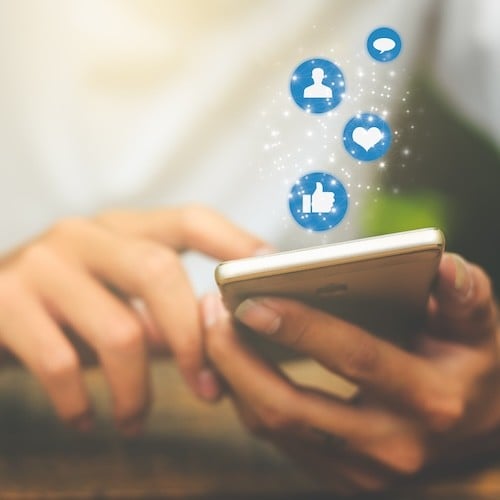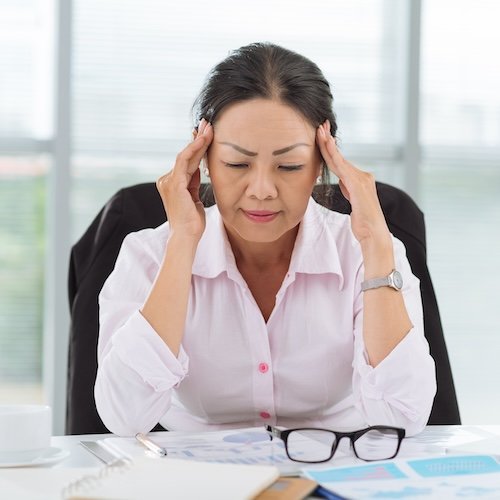To say that social media changed the way we communicate, shop, and gather information is a huge understatement. After all, social media has virtually erased many borders, and allowed people from all corners of the globe to communicate with one another and enjoy various kinds of entertaining content.
As of 2021, around 4.4 billion people use social media platforms and engage with at least 6.6 social media applications or websites.
However, frequent social media use has been considered a double-edged sword.
While accessibility and ease of connectivity and convenience are some positives attributed to social media, experts have also noticed the unfortunate negative effect on mental health.
Before you scroll through your feed, like a post, or watch that video clip, you may want to take the time to reflect on how social media affects our mental health.
Take Note of How Social Media Functions
To understand the possible impacts of social media on mental health, note how these platforms function for a lot of people. According to authors of one 2022 study, social media takes on three “roles” for people:
- As a stressor: Some reasons why people can feel stressed due to social media include:
- Increased approval anxiety: This is presented by a tendency to perceive self-worth or popularity and a hypervigilance on one’s physical appearance or personal success.
- Fear of missing out or “FOMO:” This refers to fear that other people may be enjoying more positive moments in their lives compared to theirs.
- Misinformation: Not knowing the difference between the truth and fake news can be a source of stress for some.
- Push notifications from applications: Whether these come from news organizations’ platforms or work-related tools, notifications signaling their activity can be stressful for people.
- As a resource: Undeniably, social media provides accessible resources regarding various topics, issues, and concerns. Moreover, social media fosters community-building in a virtual space, allowing users to gain additional access to resources and enhance their social capital.
In particular, social media helps provide individuals often stigmatized offline with a “safe space” in the digital realm where they can feel less like outcasts and receive support and guidance they need and deserve. - As a coping mechanism: Study authors emphasize that people use social media as a coping mechanism in three ways. If this use is effective or not in relieving stress is another question though. According to study authors, people often use social media as a coping mechanism when they:
- Want to seek support on the platforms they use due to their stressful experiences
- Aim to address or improve stress-induced negative emotions by searching for a “distraction” or venting emotions
- Desire to solve the reason for the stressful emotion/s or situation/s
How Does Social Media Affect Mental Health?
On a positive note, findings of a 2023 study highlighted that online social support received from social media may help increase people’s self-esteem and lessen instances of depressive symptoms.
As mentioned in the 2022 study earlier too, some people use these platforms as a way to gain positive information that can help them improve themselves and their capabilities. Other platforms can also provide safe spaces for people to be heard without being stigmatized.
On the other end of the spectrum, some studies have unfortunately discussed the detrimental impacts social media has on mental health. A June 2020 article revealed that frequent use of social media was linked to an increase in symptoms related to depression and anxiety.
Moreover, since social media does function as a stressor for some people, individuals may experience heightened negative reactions, especially if the cause/s for these are unaddressed.
Where Can You Go From Here? Boundaries Help!
Given that people use social media in a variety of ways and for different purposes, the effects and experiences of people when using these platforms are not identical. Some people are even obligated to use social media frequently due to the nature of their work or study.
So how exactly can people mitigate some of the negative effects social media may have on mental health? It starts with knowing your limits and setting boundaries. There has to come a time when you or someone you know will need to be actively aware of what is being viewed or consumed these platforms.
12 Ways to Establish Boundaries on Social Media Use
Drawing the line between what is good and harmful on social media is definitely easier said than done. After all, there are multiple gray areas within the realm of social media that make it difficult for people to know where to mark those boundaries.
Plus, people have different thresholds when it comes to what they can and cannot consume online. However, just like with all tasks, it pays to start somewhere. Here are some tips on how you can avoid falling into the trap of being too consumed by social media:
- If you feel uncomfortable or wary about certain content, pages, or even personalities, avoid or block them.
- Follow or give attention to content, pages, or personalities that provide correct and reliable information and make you feel mentally healthy.
- Exercise safety when creating new accounts and posting. Make an effort to protect yourself virtually, similarly to how you would shield yourself in person.
- Disconnect from social media at certain times of the day. For example, do not use social media while driving, working out, eating meals, or spending time with friends.
- Track how much time you spend on social media daily and establish goals related to restricting your usage of these platforms.
- Turn off notifications, especially if these make you feel anxious and stressed.
- Avoid using or bringing your smartphone or tablet to your bed. Before you sleep, turn these devices off or put them in a “Do Not Disturb” mode so you can relax and recharge.
- Allot time each week to have offline interactions or get-togethers with friends or family. Avoid social media use during these get-togethers.
- If you have children, monitor their social media use. Do your research on parental control features for certain platforms that’ll help limit children’s social media use, schedule use at specific times of the day, and reduce exposure to online bullies or even predators.
- Have a conversation on how social media works with your children. It is important that they understand, even at a young age, that social media posts are just “curated content” that people want others to see or perceive about their lives. Moreover, talk to them about not equating social media popularity or self-worth with the amount of engagements they receive online. Lastly, encourage them to report personalities, content, pages, or platforms they feel uncomfortable or scared with.
- Encourage participation in exercise and other offline hobbies, interests, and activities, especially those that facilitate face-to-face interaction. Offline activities may help lessen their dependence on social media and pave the way for increased self-worth and knowledge of various social skills.
- Consult a mental health professional if you feel overwhelmed. Undergoing therapy may be beneficial in certain cases. These people may help understand the root cause of the issue and suggest ways that can aid you or someone you know moving forward.
Now that you know how social media affects mental health, let these insights and strategies help you establish clearer boundaries, filter content that may trigger mental health issues, and become a more responsible social media user in the long run.
References:
https://www.frontiersin.org/articles/10.3389/fsoc.2023.1132523/full
https://www.ncbi.nlm.nih.gov/pmc/articles/PMC7905185/
https://www.ncbi.nlm.nih.gov/pmc/articles/PMC7364393/
https://www.sciencedirect.com/science/article/pii/S2352250X22000070
https://www.helpguide.org/articles/mental-health/social-media-and-mental-health.htm








